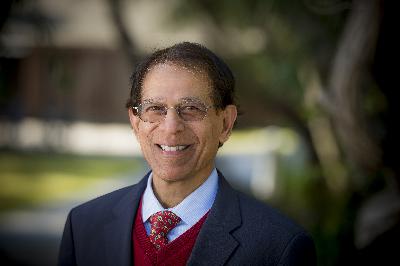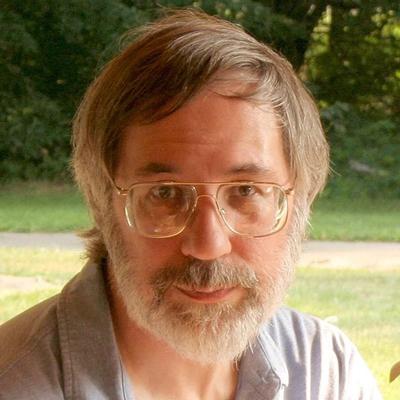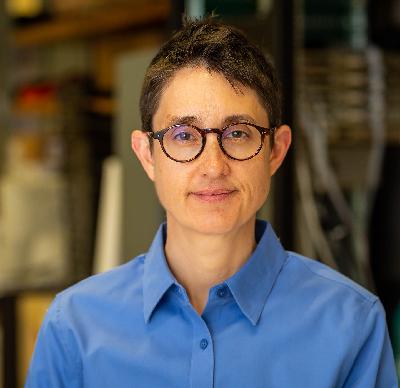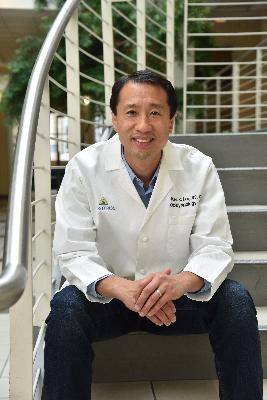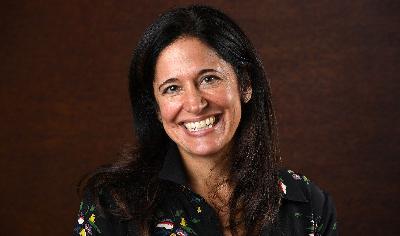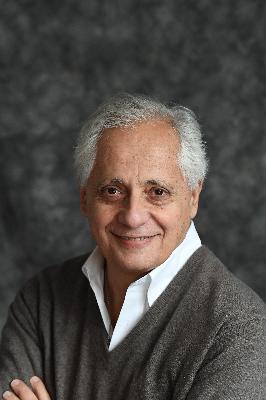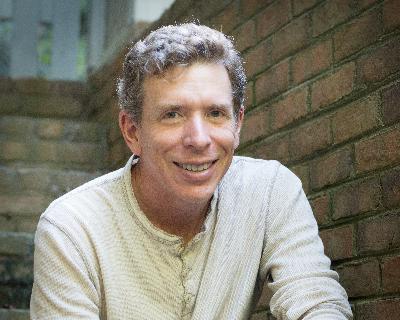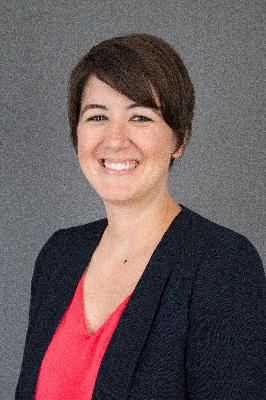Discover Cerebrum
Cerebrum

Cerebrum
Author: Dana Foundation
Subscribed: 26Played: 525Subscribe
Share
© 2021 Dana Foundation. All Rights Reserved.
Description
Cerebrum editor Bill Glovin’s monthly interviews with top neuroscientists who discuss their research-based articles, their personal stories, and how their work has the potential to make a difference in people’s lives.
Part of the Dana Foundation’s mission is to educate the public in a responsible manner about research’s potential. Listen to some of these engaging and memorable interviews, read the latest Cerebrum articles, and explore the most complex organ in the human body.
Part of the Dana Foundation’s mission is to educate the public in a responsible manner about research’s potential. Listen to some of these engaging and memorable interviews, read the latest Cerebrum articles, and explore the most complex organ in the human body.
58 Episodes
Reverse
Yasmin Hurd, Ph.D., director of the Addiction Institute at Mount Sinai Health Systems and a professor of psychiatry, neuroscience, and pharmaceutical sciences at the Ichan School of Medicine, discussed her Cerebrum magazine cover story, "A Perfect Storm: Covid + Addiction."
Gina Martin is the founder and director of The Bob and Diane Fund, which honors her parents, Bob and Diane Martin. The couple were high school sweethearts married for nearly 50 years. In 2006, at the age of 65, Diane was diagnosed with early onset Alzheimer’s, and she passed away five years later. Bob, her husband, loyal partner, and devoted caregiver, died just three months later. The fund gives an annual grant to a photographer whose work captures the essence of someone who has Alzheimer's disease or dementia. The work of the winner of the 2021 grant, Cheryle St. Onge, is featured in the winter 2022 edition of Cerebrum magazine.
The job of a magician is to exploit loopholes in the way you process reality. What are the psychological implications of deception? Hear from Daniel Roy, who received a B.S. degree in neurobiology from the University of Pennsylvania and is a professional magician who has performed at the Mirrors Magic Theater in Philadelphia, the Hollywood Magic Castle, and has appeared on Penn & Teller: Fool Us! on national television.
We discuss the long-term neurocognitive impacts of cancer treatment in children survivors, the dizzying post-treatment landscape that families learn to navigate, and the critical roles that educators and healthcare professionals hold in survivors’ lives (well after treatment is done) with Lisa Jacobson, PhD, NCSP, ABPP. She is Director of Research in the Department of Neuropsychology at the Kennedy Krieger Institute and co-director of the institute’s Center for Innovation and Leadership in Special Education (CILSE). Follow Jacobson’s work and learn more about the Kennedy Krieger Institute at: https://www.kennedykrieger.org and on twitter @ SUCCESSLab3. Podcast transcript: https://on.dana.org/transcript-cbs-jacobson Cancer Survivorship and Schooling Resources: https://www.kennedykrieger.org/cancer-survivorship-schooling-resources CILSE (for educators): https://www.kennedykrieger.org/training/programs/center-for-innovation-and-leadership-in-special-education ---- Explore the brain with us: https://dana.org Subscribe to our free online publications: https://dana.org/subscribe
Lisa Feldman Barrett, Ph.D., co-director of the Interdisciplinary Affective Science Laboratory at Northeastern University and Massachusetts General Hospital, talks about the internal-sense system, largely below our consciousness, that keeps our bodies and brains going. podcast transcript: on.dana.org/cerebrum-transcript-barrett
Dilip V. Jeste, M.D, author and senior associate dean for healthy aging at the University of California, San Diego, talks about his Cerebrum magazine cover story, “Ageism: The Brain Strikes Back." podcast transcript: on.dana.org/cerebrum-transcript-jeste
Mark Shelhamer, former chief scientist for the NASA Human Research Program, examines what spaceflight can teach us about cognitive performance and mental abilities. Podcast Transcript http://on.dana.org/cerebrum-transcript-shelhamer
Peter Campochiaro, M.D., a clinician and professor of ophthalmology and neuroscience, talks about about strategies to treat macular degeneration, a condition that affects 200 million people worldwide. Podcast Transcript http://on.dana.org/cerebrum-transcript-campochiaro
Vince Calhoun, author of our Cerebrum story, “The Promise of Big Data Imaging for Mental Health,” discusses his pioneering research and the evolution of a growing field that has enormous potential to have an impact of both mental health and neurodegenerative treatment. Podcast Transcript: on.dana.org/cerebrum-transcript-calhoun
Catherine Woolley, author of our Cerebrum cover story, “His and Hers: Sex Differences in the Brain,” discusses what the research has told us so far and why more research is desperately needed. Podcast Transcript: on.dana.org/cerebrum-transcript-woolley
In this episode, we discuss adolescence, what maturity means to a neuroscientist, and what brain development looks like in the age of Covid-19 with Abigail Baird, Ph.D., professor of psychology at Vassar College and principal investigator of the Laboratory for Adolescent Science. Visit www.theteenspecies.com to follow Baird's research and the latest information on her forthcoming Audible project, all about the teenage brain!
Frank Lin, M.D., Ph.D., author of our Cerebrum magazine story “Hear and Now,” discusses his research and policy making role regarding a link between hearing loss, dementia, and cognitive function. Podcast Transcript: http://on.dana.org/cerebrum-transcript-lin
Ilina Singh, Ph.D., author of our Cerebrum magazine cover story “Neuroscience for Global Mental Health,” discusses her experience on the Lancet Commission on Global Mental Health and the NeuroGenE global initiative in psychiatric ethics. Podcast Transcript: http://on.dana.org/cerebrum-transcript-singh
Gerard Karsenty, M.D., Ph.D., author of our Cerebrum story, “That Feeling in Your Bones,” discusses his groundbreaking research regarding osteocalcin, a hormone that triggers a “fight or flight response” and possibly much more. Podcast Transcript: https://on.dana.org/cerebrum-transcript-karsenty
Marc Brackett, Ph.D., founding director of the Yale Center for Emotional Intelligence and professor in the Child Study Center at the Yale School of Medicine, talks about his path to the field and how becoming a fifth degree black belt in Aikido and his own experience with therapy has informed his work. Podcast Transcript: https://on.dana.org/cerebrum-transcript-brackett
Lee Alan Dugatkin, coauthor of "How to Tame a Fox," discusses his Cerebrum article and other significant findings since the book was published. Podcast Transcript: https://on.dana.org/cerebrum-transcript-dugatkin
Gregory Berns, M.D., Ph.D., author of our Cerebrum magazine cover story, “Decoding the Canine Mind,” the Distinguished Professor of Neuroeconomics at Emory University and “How Dogs Love Us” (New Harvest, 2013), explains the challenges scanning the brain of a dog, what motivated him to specialize in canine cognition, and more. Podcast Transcript: https://on.dana.org/cerebrum-transcript-berns
Roger E. Beaty, Ph.D., author of “The Creative Brain” and director of the Cognitive Neuroscience of Creativity Lab at Pennsylvania State University, discusses how he uses brain imaging and behavioral experiments to examine how creativity works in different contexts and domains.
Jerold Chun, M.D., Ph.D., professor and senior vice president of Neuroscience Drug Discovery at Sanford Burnham Prebys Medical Discovery Institute, discusses a genetic approach to solving Alzheimer’s disease, plus a promising therapeutic intervention.
Keely A. Muscatell, Ph.D., author of "Brains, Bodies, and Social Hierarchies" and director of the Social Neuroscience and Health laboratory at the University of North Carolina, discusses new research that ties income and other factors to stress and emotional responses.







